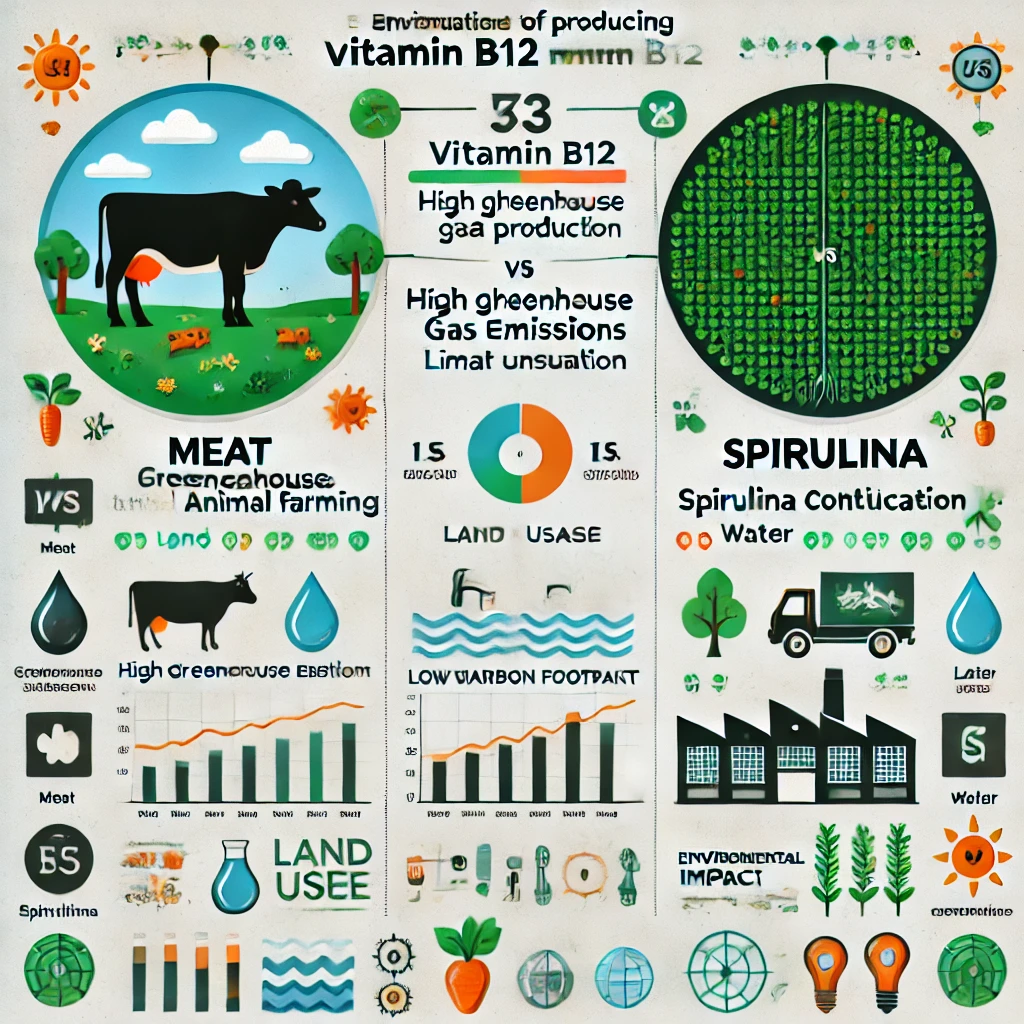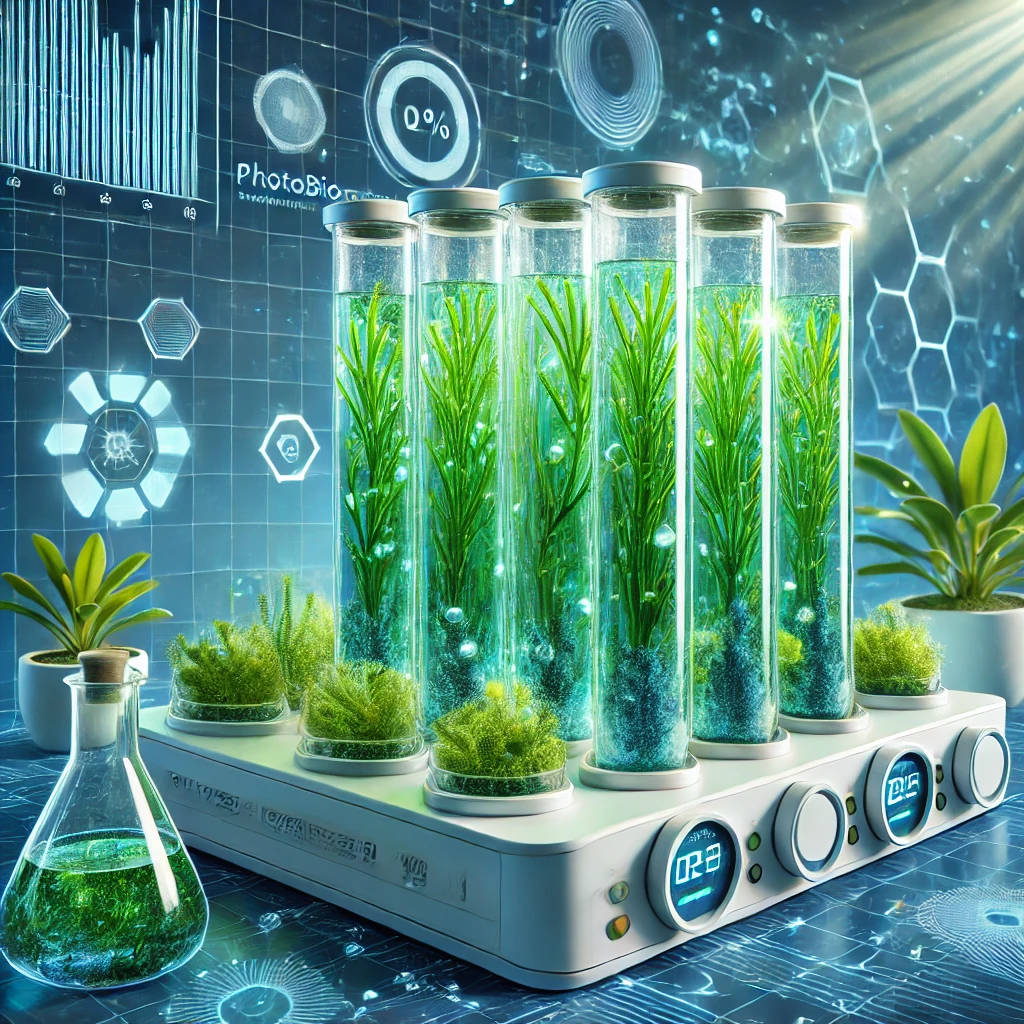Addressing nutritional deficiencies through eco-friendly methods becomes more critical as the world increasingly embraces sustainable living. Vitamin B12 deficiency is a global concern, especially for those following vegetarian and vegan diets. Traditionally sourced from animal products, vitamin B12 is essential in maintaining nerve function, red blood cell formation, and overall metabolic health. Recent advances in biotechnology, particularly with Spirulina, offer a promising Sustainable Solution to Vitamin B12 Deficiency.
Understanding Vitamin B12 Deficiency
Vitamin B12 deficiency can lead to serious health issues such as anemia, neurological damage, and cognitive impairments. Those most at risk include vegans, vegetarians, older adults, and people with certain medical conditions that impair nutrient absorption. The traditional sources of B12—meat, eggs, and dairy—pose challenges for individuals committed to a plant-based diet and sustainability.
In regions where meat and dairy consumption is low or unsustainable due to environmental or economic factors, finding an alternative, sustainable source of vitamin B12 is crucial.
Spirulina: A Game-Changing Nutrient Source
Spirulina, a type of blue-green algae, has been recognized for its high protein content, vitamins, minerals, and antioxidants. However, until recently, it was not considered a reliable source of vitamin B12 due to its low bioavailability in humans. New research has changed that perspective.
Breakthrough in Spirulina Cultivation
A team of scientists has developed a method to enhance the bioavailability of vitamin B12 in Spirulina through advanced photonic management techniques within photobioreactors. This technology controls light exposure to optimize the algae’s growth conditions, leading to Spirulina, which contains bioactive vitamin B12—levels comparable to those found in beef.
This process not only produces Spirulina rich in vitamin B12 but does so in a carbon-neutral manner, making it an environmentally sustainable option.
Benefits of Vitamin B12-Enriched Spirulina
| Benefits | Description |
| Nutrient Density | Spirulina is rich in proteins, vitamins, and minerals, now including bioavailable B12. |
| Eco-Friendly | Cultivation is carbon-neutral, requiring minimal resources compared to animal farming. |
| Scalability | The production process can be scaled to meet global demands, offering a potential solution to widespread vitamin B12 deficiency. |
| Sustainability | As a renewable resource, Spirulina can be produced with significantly lower environmental impact. |
Sustainable Production Methods

The production of Spirulina with enriched vitamin B12 involves photobioreactors, which utilize controlled environments to optimize growth. This method leverages renewable energy sources, particularly in regions with high renewable energy capacity, such as Iceland. Countries can produce Spirulina on a large scale by reallocating industrial electricity to power these reactors, addressing nutritional and sustainability concerns.
For instance, Iceland could produce enough Spirulina to meet the vitamin B12 needs of millions of children annually. This would drastically reduce the reliance on traditional animal products, offering a sustainable alternative for global nutrition.
Comparison of Environmental Impact
| Factor | Animal-Based B12 | Spirulina |
|---|---|---|
| Greenhouse Gas Emissions | High | Low |
| Land Usage | High | Low |
| Water Consumption | High | Low |
| Renewable Energy Use | Low | High |
This graph illustrates the significant environmental benefits of producing vitamin B12 from Spirulina compared to traditional animal-based methods.
Addressing Global Vitamin B12 Deficiency
As the global population grows and the demand for sustainable nutrition increases, the need for reliable, eco-friendly sources of essential nutrients like vitamin B12 becomes more pressing. The advancements in Spirulina cultivation provide a viable solution that could be implemented worldwide, particularly in regions where access to animal products is limited or unsustainable.
Policy Implications and Future Research
Governments and international organizations should support developing and distributing B12-enriched Spirulina to combat global vitamin B12 deficiency sustainably. Further research into optimizing the bioavailability of B12 in Spirulina and other microalgae could lead to even more efficient and accessible solutions.
Explore More About Spirulina Research
Conclusion: A Path Towards Sustainable Nutrition
The breakthrough in producing vitamin B12-enriched Spirulina marks a significant step forward in addressing global nutritional deficiencies through sustainable practices. By harnessing biotechnology and renewable energy, we can produce nutrient-rich foods with minimal environmental impact, paving the way for a healthier, more sustainable future.
As research continues to evolve, Spirulina and other microalgae may become central to our efforts in combating malnutrition and promoting environmental stewardship. For individuals committed to sustainability, embracing these innovations offers a path to maintaining health without compromising the planet.
Would you like to learn more about sustainable nutrition? Subscribe to Our Newsletter for the latest updates and research.

Leave a Reply